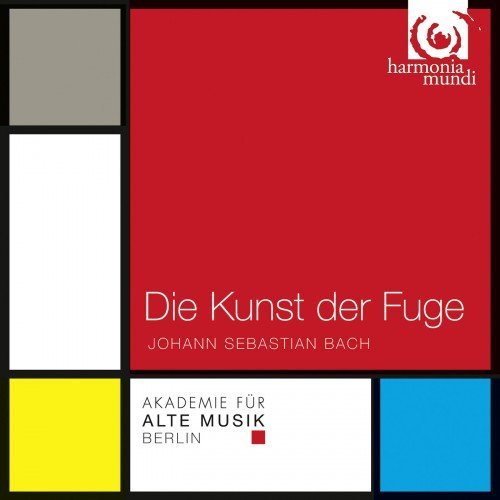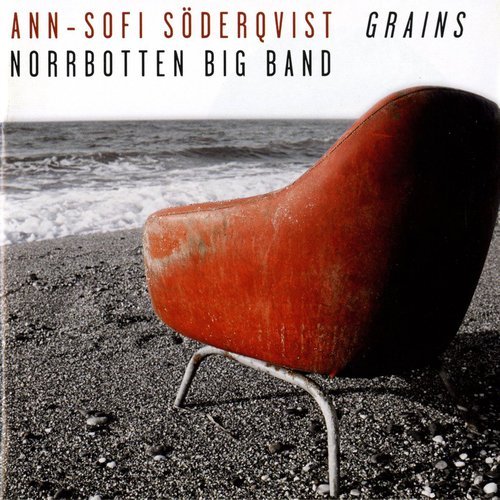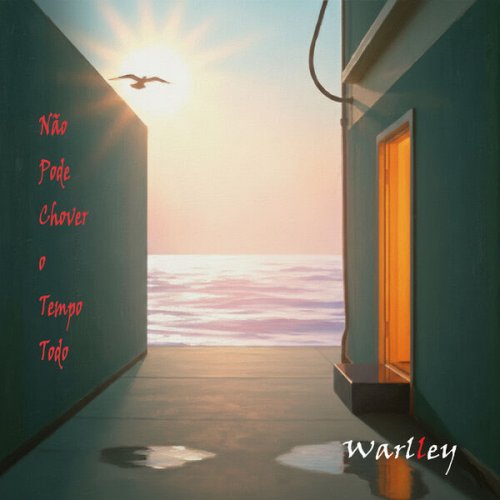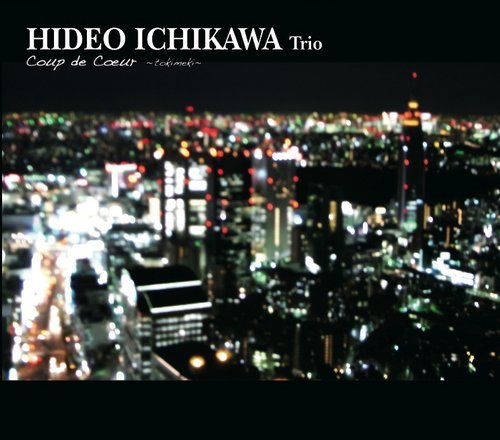Akademie für Alte Musik Berlin - J.S. Bach - Die Kunst der Fuge (2011)

Artist: Akademie für Alte Musik Berlin
Title: J.S. Bach - Die Kunst der Fuge
Year Of Release: 2011
Label: Harmonia Mundi
Genre: Classical
Quality: FLAC (tracks+.cue,log)
Total Time: 01:17:40
Total Size: 434 Mb
WebSite: Album Preview
Tracklist: Title: J.S. Bach - Die Kunst der Fuge
Year Of Release: 2011
Label: Harmonia Mundi
Genre: Classical
Quality: FLAC (tracks+.cue,log)
Total Time: 01:17:40
Total Size: 434 Mb
WebSite: Album Preview
01. Choral “Aus tiefer Not” (Schlußchoral der Kantate BWV 38) (1:22)
Die Kunst der Fuge
02. Contrapunctus 1. Einfache Fuge über das Thema in seiner Urgestalt, a 4 (2:40)
03. Contrapunctus 2. Einfache Fuge über das Thema in seiner Urgestalt, a 4 (3:37)
04. Contrapunctus 3. Einfache Fuge über die Umkehrung des Themas, a 4 (2:48)
05. Contrapunctus 4. Einfache Fuge uber die Umkehrung des Themas, a 4 (4:26)
06. Kanon 15. Kanon in der Oktave, a 2 (2:21)
07. Contrapunctus 5. Gegenfuge über das variierte Thema und seine Umkehrung in einer Wertgröße, a 4 (2:51)
08. Contrapunctus 6. Gegenfuge über das variierte Thema und seine Umkehrung in zwei verschiedenen Wertgrößen, a 4 (3:17)
09. Contrapunctus 7. Gegenfuge über das variierte Thema und seine Umkehrung in drei verschiedenen Wertgrößen, a 4 (4:14)
10. Kanon 16. Kanon in der Dezime. Contrapunto alla terza (4:06)
11. Contrapunctus 8. Tripelfuge über zwei neue Themen und das variierte Hauptthema, a 3 (6:08)
12. Contrapunctus 9. Doppelfuge über eine neues Thema und über das Hauptthema, a 4 (2:41)
13. Contrapunctus 10. Doppelfuge über eine neues Thema und über das variierte Hauptthema, a 4 (4:05)
14. Contrapunctus 11. Tripelfuge über zwei neue Themen und das variierte Hauptthema a 4 (6:36)
15. Kanon 17. Kanon in der Duodezime (2:12)
16. Contrapunctus 12a. Spiegelfuge über Varianten des Themas, a 4 (2:13)
17. Contrapunctus 12b. Spiegelfuge über Varianten des Themas, a 4 (2:23)
18. Contrapunctus 13a. Spiegelfuge über das variierte Thema und seine Umkehrung, a 3 (2:29)
19. Contrapunctus 13b. Spiegelfuge über das variierte Thema und seine Umkehrung, a 3 (2:21)
20. Kanon 14. Kanon in Gegenbewegung und Vergroserung (5:22)
21. Contrapunctus 18. Unvollendete Fuge über drei neue Themen, drittes Thema: B-A-C-H, a 4 (9:27)
Performers:
Akademie für Alte Musik Berlin
Bach's unfinished Art of Fugue, published for still-debated reasons in open score, has been performed and recorded in dozens of different instrumental versions. But this one, by the veteran Akademie für alte Musik, founded in the former East Berlin, is unique; few others have differentiated the fugues by instrumental forces deployed, and perhaps in none has the overall effect been quite so kaleidoscopic as this one. The rationale for this remains a bit uncertain after perusal of the booklet notes (in German and English); the group members write that, as with other instrumental versions, they aim to "achieve transparent and legible textures," but their "real motivation in tackling the work was the pleasure of plunging together into the structures, harmonic language, and chromatic content of this music, in which an ensemble can make extraordinary discoveries through musical and instrumental confrontations." The Akademie für alte Musik is not a historical instrument group, and there are no claims of any kind for authentic performance. Instead there is a shifting set of forces with a few recurring groups or individual players: a string quartet, a solo keyboardist, small wind groups, various pairs of strings in the canons, and tuttis including the entire ensemble of strings, three oboes in different ranges, bassoon, trombone, and keyboard (either harpsichord or organ). The shifts in instrumentation do not correspond to the work's broad sections (simple fugues, fugues in augmentation, double and triple fugues, and the awesomely complex mirror fugues), and it's hard to find a pattern of any kind. The motivation is murky, but the effect is pleasing if the listener approaches the music in the same sort of freewheeling spirit that the performers seem to have; the incredible concentration demanded by the Art of Fugue, which may or may not have been intended as a work to be performed from start to finish, is replaced by a light sense of anticipation that is extrinsic to the work but not fundamentally alien to it. This is the kind of recording for which sampling will reliably place the potential buyer into the pro or anti group. The sound engineering, a product of Berlin's Teldex Studio, is a major strong point.

![Future Backup, Volker Heuken, Lukas Grossmann, Johannes Koch - Golden (2026) [Hi-Res] Future Backup, Volker Heuken, Lukas Grossmann, Johannes Koch - Golden (2026) [Hi-Res]](https://www.dibpic.com/uploads/posts/2026-02/1770729046_folder.jpg)
![Abraham Réunion - Jaden an nou (2026) [Hi-Res] Abraham Réunion - Jaden an nou (2026) [Hi-Res]](https://www.dibpic.com/uploads/posts/2026-02/1770745777_folder.jpg)



![Miles Davis - The New Sounds (Remastered 2026) (1951) [Hi-Res] Miles Davis - The New Sounds (Remastered 2026) (1951) [Hi-Res]](https://www.dibpic.com/uploads/posts/2026-02/1770742585_cover.jpg)
![Howard McGhee - Dusty Blue (Remastered 2013) (2026) [Hi-Res] Howard McGhee - Dusty Blue (Remastered 2013) (2026) [Hi-Res]](https://www.dibpic.com/uploads/posts/2026-02/1770800733_dm4oiwhycda9e_600.jpg)
